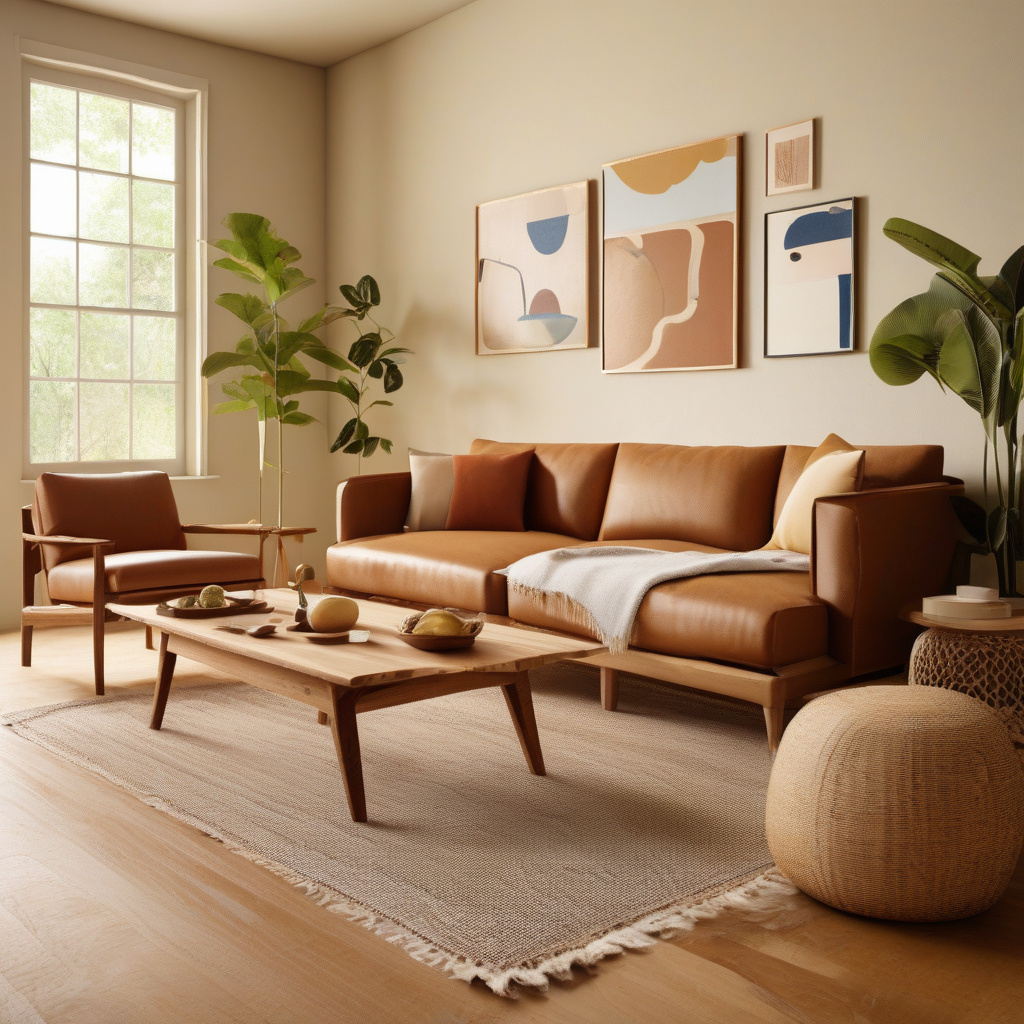Furniture Startup Sabai’s Sales Surge by 30% Through Affordability and Sustainability
In an era where consumer preferences are shifting towards more conscious purchasing, furniture startup Sabai is making waves in the industry. With a staggering 30% increase in sales year-to-date, this six-year-old brand is redefining the landscape of furniture retail by prioritizing affordability and sustainability. The surge in sales can be attributed to Sabai’s strategic focus on natural materials and its North Carolina manufacturing story, allowing it to stand out in a market increasingly challenged by rising import costs.
Founded in 2017, Sabai has carved out a niche for itself by championing sustainable practices while ensuring its products remain accessible to a broad audience. As global supply chains face disruptions and international shipping costs continue to climb, many consumers are reevaluating where they source their furniture. This is where Sabai’s model shines. By promoting locally sourced materials and domestic manufacturing, the brand not only cuts down on shipping expenses but also reduces its carbon footprint, appealing to eco-conscious consumers.
The furniture industry has long been dominated by imported goods, often made from cheaper materials and sold at lower prices. However, as import prices rise, consumers are beginning to recognize the value of investing in quality, sustainably made furniture. Sabai has successfully leveraged this trend by emphasizing its commitment to using natural materials such as responsibly sourced wood and recycled fabrics. This approach not only enhances the aesthetic appeal of their products but also provides a compelling narrative that resonates with modern consumers.
For example, Sabai’s sofas are made with certified sustainable wood frames and high-quality upholstery, which are not only durable but also free from harmful chemicals typically found in mass-produced furniture. This commitment to sustainability does not come at the cost of design; rather, it gives Sabai an edge in a competitive market. The minimalist designs and customizable options cater to a variety of tastes and preferences, further broadening the brand’s appeal.
Moreover, Sabai’s North Carolina manufacturing story reinforces its dedication to local craftsmanship. By producing its furniture domestically, the company not only supports local economies but also ensures stricter quality control. This is a significant advantage in a market where many consumers are becoming increasingly wary of the quality of imported goods. The “Made in America” label serves as a badge of honor that resonates with a demographic that values transparency and ethical production practices.
As part of its strategy to communicate its values, Sabai has invested in effective marketing campaigns that highlight both affordability and sustainability. The brand utilizes social media platforms to engage with its audience and share stories about its products, from the sourcing of materials to the artisans behind the manufacturing process. By creating a narrative that emphasizes the importance of responsible consumption, Sabai positions itself not just as a furniture retailer but as a lifestyle choice for consumers who prioritize sustainability.
Another key factor contributing to Sabai’s impressive sales growth is its pricing strategy. While many competitors struggle with inflated prices due to increased import costs, Sabai has managed to keep its products affordable. This is a crucial selling point, especially as consumers tighten their belts amid economic uncertainty. By providing stylish and sustainable options at accessible price points, Sabai makes it easier for consumers to make responsible choices without feeling financially burdened.
The brand’s growth is not just a flash in the pan; it indicates a substantial shift in consumer behavior. More people are becoming aware of the environmental impact of their purchases and are actively seeking brands that align with their values. Sabai’s success serves as a case study for how startups can utilize sustainability and affordability to carve out a significant market share.
In conclusion, Sabai’s 30% increase in sales year-to-date showcases the effectiveness of its dual focus on affordability and sustainability. By leveraging local manufacturing and natural materials, the brand has differentiated itself in a competitive market, appealing to consumers who are increasingly mindful of their purchasing decisions. As the furniture industry continues to evolve, Sabai stands as a testament to the power of aligning business practices with consumer values, paving the way for a more sustainable future in retail.
sustainability, furniture, affordability, local manufacturing, consumer behavior
